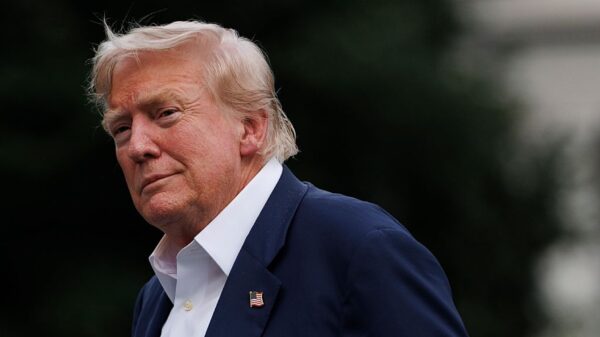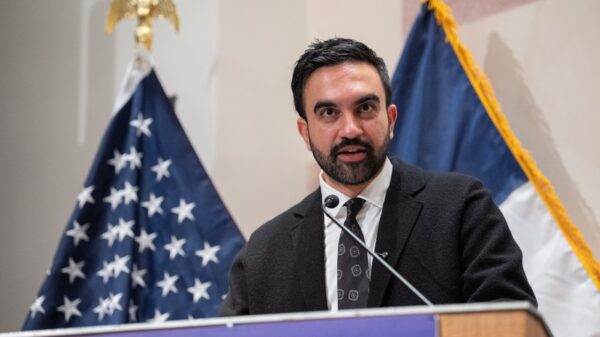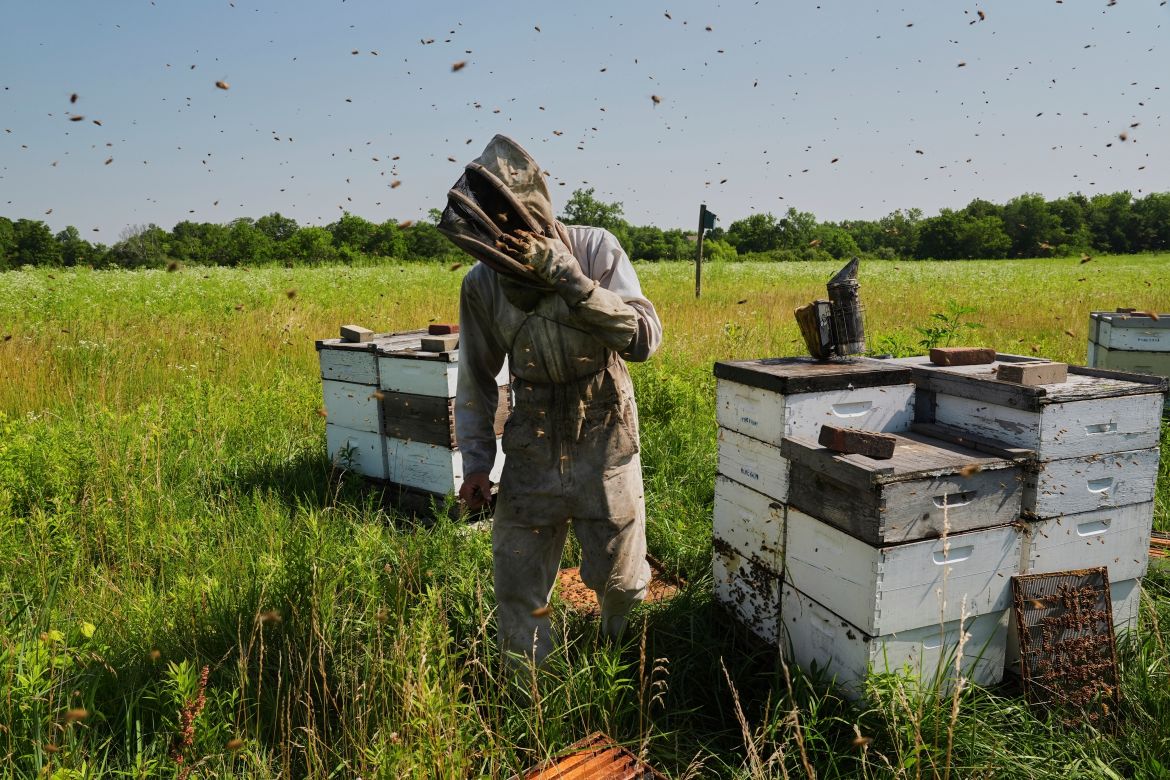UPDATE: The future of global bee populations hangs in the balance as the Trump administration’s proposed budget threatens critical research funding just as rising temperatures exacerbate the crisis. Reports confirm that 56 percent of managed bee colonies in the U.S. were lost this year, marking the highest decline since the survey began in 2010.
Beekeeper Isaac Barnes from Ohio is witnessing the impact firsthand. As temperatures soar, he struggles to manage his 500 honeybee hives, which are vital for pollinating crops like almonds, apples, and blueberries. The bees are now facing extreme heat, diseases, and habitat loss, making their survival increasingly precarious.
Scientists are racing against time to understand how climate change is affecting these essential pollinators. Research shows that bees have adapted by reducing their wingbeats to avoid overheating, but experts warn that as temperatures rise, their resilience may falter. “Just like we go into the shade, bees retreat to cooler environments,” says Jon Harrison, an environmental physiologist at Arizona State University and a co-author of a critical study.
The implications are dire. With the Trump administration’s budget cuts, the US Geological Survey Bee Lab, which monitors the health of wild bee populations, could be significantly impacted. Senator Jeff Merkley from Oregon has called the situation “grave,” stressing the importance of federal funding to protect pollinators that are crucial to food supply and ecosystem health.
Barnes reports devastating losses, including nearly a third of the hives his farm sent to California for almond pollination last year. He believes that heat stress left the hives vulnerable to parasitic mites, which could be fatal. “If it gets too hot, I can’t apply treatments that keep the mites at bay,” he explains.
The stakes are high, as fewer bees mean less pollination, leading to lower crop yields and potentially higher prices for fruits, vegetables, and nuts. “Without proper research funding, we risk seeing these pollinator populations decline further,” warns Harrison. He emphasizes that halting this research could endanger global food supplies and biodiversity.
Despite the bleak outlook, there is hope for continued research abroad. “Even if funding is cut in the U.S., we hope it will persist in Europe and China,” Harrison adds. As the world grapples with climate change, the fight to save bees is more urgent than ever.
As the situation develops, stakeholders urge immediate action to secure funding for bee research and conservation efforts, emphasizing the critical role these pollinators play in our environment and food systems. Share this urgent news to raise awareness about the challenges facing our vital pollinators.



































































